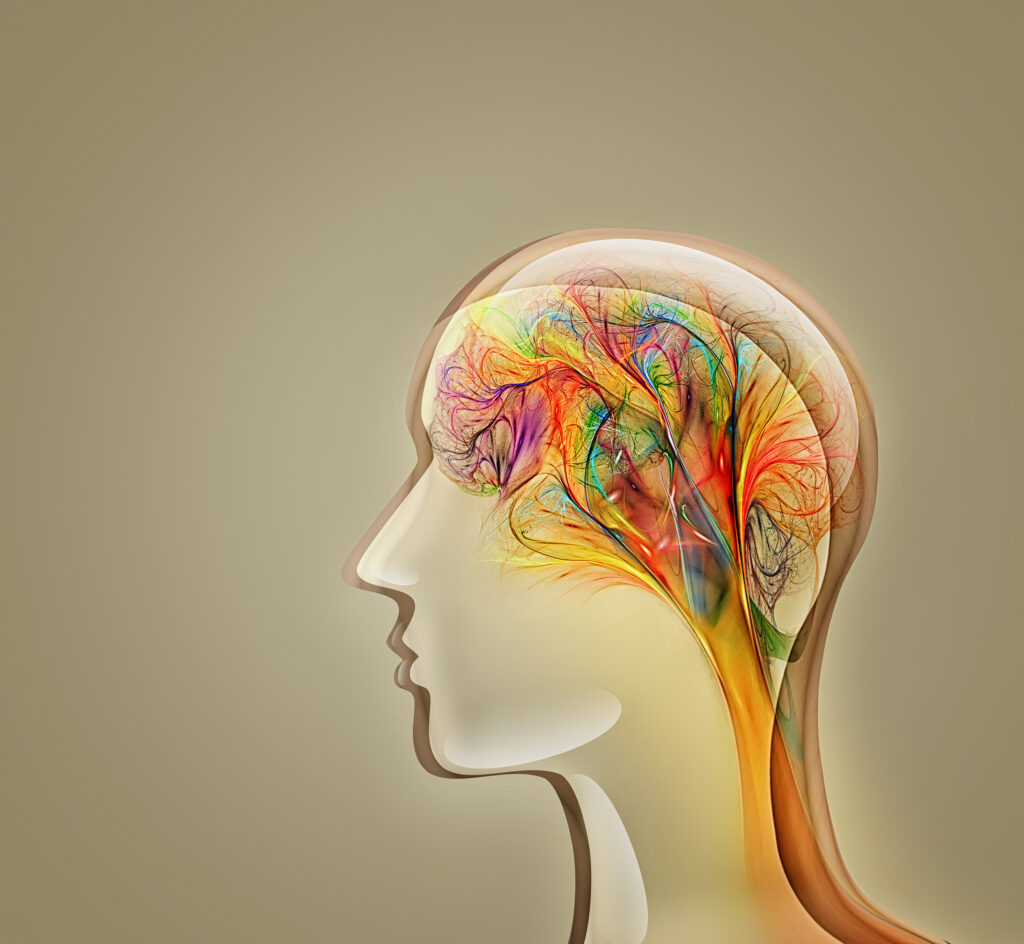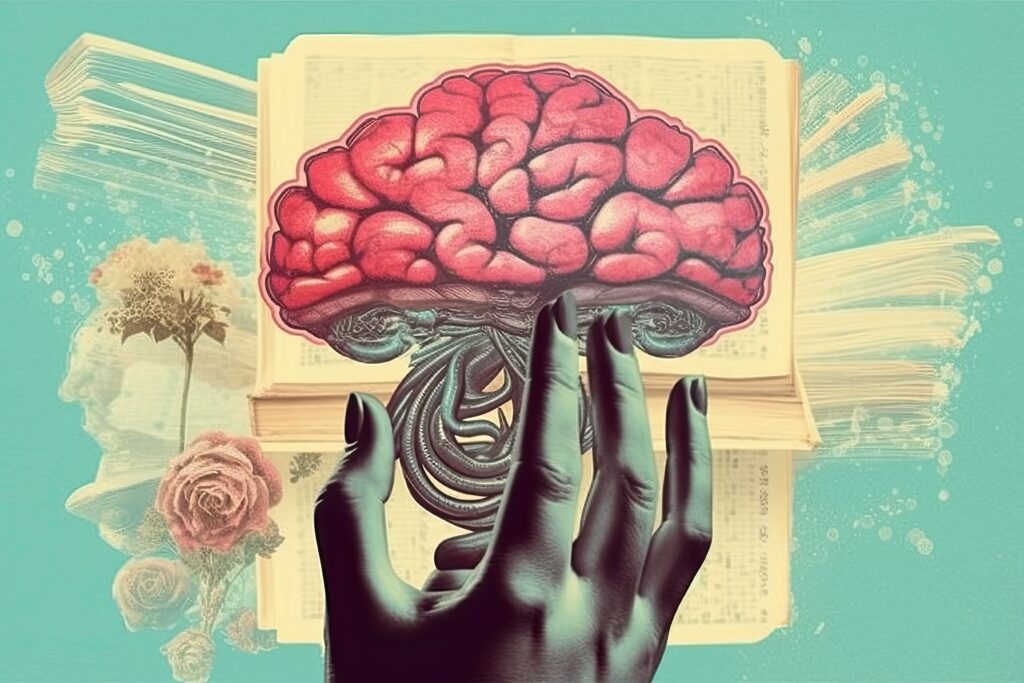Have you ever marveled at the astonishing capacity of the human memory? Our ability to store and retrieve vast amounts of information is nothing short of extraordinary. From cherished childhood memories to critical information needed for daily tasks, our memory plays a pivotal role in shaping our lives.
In this article, we will unlock the secrets of the brain’s storage system and delve into the fascinating realm of human memory. Join us as we explore the intricacies of memory formation, the different types of memory, and the factors that can impact memory recall. We will also discover techniques for enhancing memory and shed light on memory disorders and their effects on cognitive function.
Prepare to be inspired as we uncover the underlying science behind forgetfulness and examine the profound relationship between memory and trauma. We will also discuss the practical applications of harnessing the power of memory in learning, education, and everyday life.
Key Takeaways:
- The human memory is a remarkable storage system that enables us to retain and retrieve information.
- Memory formation involves the encoding and storing of information in the brain.
- There are different types of memory, including short-term memory, long-term memory, and working memory.
- The hippocampus plays a crucial role in memory formation and consolidation.
- Various factors such as emotions, stress, and medication can affect memory recall.
Understanding Memory Formation

Memory formation is a fascinating process that allows the brain to encode and store information. It involves a complex series of events that occur within the neural circuits of the brain, ultimately leading to the creation of memories for future retrieval.
When we experience something new or learn new information, our brain goes through a process known as memory formation. This process involves several key steps:
- Encoding: During encoding, information from the external world is transformed into neural codes that can be processed and stored by the brain.
- Consolidation: Consolidation is the process by which newly encoded memories are stabilized and strengthened over time. It involves the reorganization of neural connections and the transfer of information from short-term memory to long-term memory.
- Storage: Once memories are consolidated, they are stored in various regions of the brain, where they can be accessed and retrieved later.
Memory formation is influenced by various factors, including the emotional significance of an event, the repetition of information, and the level of attention and focus during encoding. Additionally, sleep plays a crucial role in memory consolidation, as it allows the brain to process and integrate newly acquired information.
“The process of memory formation is like building a library in the brain, where each memory is a book waiting to be retrieved.”
Neural Mechanisms of Memory Formation
Memory formation involves the intricate interplay of different brain regions and neural networks. One key brain structure involved in memory formation is the hippocampus, which plays a crucial role in encoding new memories and spatial navigation.
Research has shown that the hippocampus acts as a temporary storage site for newly acquired information, allowing it to be processed and integrated into existing knowledge. Over time, the hippocampus works together with other brain regions, such as the cortex, to consolidate memories and create long-lasting storage.
Understanding the neural mechanisms underlying memory formation is a complex and ongoing area of research. Scientists continue to investigate the intricate processes that occur within the brain, shedding light on the remarkable capacity of our memory system.
Types of Memory
When it comes to memory, our brains possess incredible capabilities. In this section, we will explore the various types of memory that contribute to our daily experiences and shape who we are.
Short-Term Memory
Short-term memory, also known as working memory, allows us to temporarily hold and manipulate information for a brief period. It plays a crucial role in tasks like remembering a phone number or following directions.
Long-Term Memory
Long-term memory is responsible for storing information over an extended period, ranging from days to years. This type of memory is further divided into two categories:
- Explicit (or declarative) memory: This type of memory involves conscious recall of facts and events. It can be further divided into episodic memory (remembering specific events) and semantic memory (knowledge about the world).
- Implicit (or procedural) memory: This type of memory is unconscious and involves remembering skills and habits. Examples include riding a bike or playing an instrument.
Types of Memory
| Type of Memory | Description |
|---|---|
| Short-Term Memory | Temporary storage and manipulation of information |
| Long-Term Memory | Permanent storage of information over an extended period |
| Explicit Memory | Conscious recall of facts and events |
| Episodic Memory | Memory of specific events |
| Semantic Memory | General knowledge about the world |
| Implicit Memory | Unconscious memory of skills and habits |
Understanding the different types of memory is key to unlocking the secrets of how we remember and learn. In the following sections, we will delve deeper into the fascinating mechanisms behind memory formation and recall.
The Role of the Hippocampus in Memory
The hippocampus is a small, seahorse-shaped structure located within the medial temporal lobe of the brain. It plays a pivotal role in the formation, consolidation, and retrieval of memories. Research has shown that damage to the hippocampus can profoundly impact an individual’s ability to form new memories, leading to a condition known as anterograde amnesia.
During the process of memory formation, information from the senses is first received by the hippocampus. It then integrates and organizes this information before sending it to the appropriate cortical regions for long-term storage. This consolidation process is crucial for the conversion of short-term memories into long-lasting memories that can be accessed in the future.
Studies have also demonstrated the involvement of the hippocampus in spatial navigation and episodic memory, which involves the recollection of specific events and personal experiences. Furthermore, the hippocampus is closely connected to other brain regions involved in memory, such as the amygdala and the prefrontal cortex.
“The hippocampus acts as a bridge between different brain regions, allowing for the integration of various aspects of memory,” explains Dr. Sarah Thompson, a neuroscientist specializing in memory research. “Its intricate connections enable the formation of complex memories that encompass both factual information and emotional experiences.”
The hippocampus is like the conductor of an orchestra, orchestrating the symphony of memories that make up our lives.”
Understanding the role of the hippocampus in memory not only provides valuable insights into how memories are formed and stored but also sheds light on the development of memory-related disorders. Disorders such as Alzheimer’s disease, which is characterized by the progressive loss of memory and cognitive function, often exhibit significant hippocampal damage.
The Hippocampus: Key Functions and Connections
Aside from its role in memory, the hippocampus is involved in a range of other cognitive functions. These include:
- Spatial navigation
- Pattern recognition
- Emotional regulation
- Learning and decision-making
Such functions are tightly interconnected with memory processes, as they contribute to the encoding, consolidation, and retrieval of memories.
Table: Connections of the Hippocampus
| Hippocampal Region | Connected Brain Structures |
|---|---|
| Dentate Gyrus | Hippocampal subregions, entorhinal cortex |
| CA1 Region | Entorhinal cortex, perirhinal cortex, parahippocampal cortex |
| CA3 Region | Entorhinal cortex, perirhinal cortex, parahippocampal cortex, amygdala |
These connections allow for the integration of information from various sensory modalities and the coordination of cognitive processes necessary for memory formation and retrieval.
In conclusion, the hippocampus is a crucial brain region involved in the formation and consolidation of memories. Understanding its role not only contributes to our knowledge of memory processes but also helps us comprehend the mechanisms behind memory-related disorders. The complex connections of the hippocampus facilitate the integration of information from different brain regions, allowing for the orchestration of memories that shape our lives.
Factors Affecting Memory Recall

Memory recall is the process of retrieving information stored in our brain and bringing it to conscious awareness. However, several factors can influence our ability to recall memories effectively. Understanding these factors can help us optimize our memory recall and improve our cognitive functioning.
Emotions
Emotions can have a profound impact on our memory recall. Strong emotional experiences, whether positive or negative, tend to be more memorable than neutral events. This phenomenon, known as the emotional enhancement effect, can heighten the vividness and accuracy of emotional memories. For example, a thrilling adventure or a traumatic event is more likely to be remembered with clarity and detail.
Stress
Stress can significantly influence our memory recall. While acute stress can enhance memory in the short term, chronic stress can impair memory function. Prolonged exposure to stress hormones, such as cortisol, can disrupt the formation and retrieval of memories, leading to forgetfulness and difficulty in recalling information.
Medication
Certain medications can impact memory recall. Some medications, especially those used for treating various mental health conditions, can have side effects that affect memory function. For instance, certain antidepressants and anti-anxiety medications may cause short-term memory loss or difficulty remembering specific details.
Distractions
External distractions can interfere with memory recall. When we are trying to retrieve information from our memory, distractions in the environment can disrupt our focus and hinder recall. It is important to create a conducive environment free from noise, interruptions, and other distractions to enhance memory retrieval.
Sleep
Sleep plays a vital role in memory consolidation and recall. Getting sufficient quality sleep allows the brain to process and integrate information, consolidating memories for long-term retention. Lack of sleep or poor sleep quality can negatively impact memory recall, leading to difficulties in retrieving information.
| Factors Affecting Memory Recall | Influence |
|---|---|
| Emotions | Can enhance or distort memory recall |
| Stress | May impair memory function |
| Medication | Some medications can cause memory loss |
| Distractions | External distractions can hinder memory recall |
| Sleep | Sufficient sleep is crucial for memory consolidation |
In summary, memory recall can be influenced by various factors, including emotions, stress, medication, distractions, and sleep. Being aware of these factors can help us optimize our memory recall and improve our overall cognitive function.
Techniques for Enhancing Memory
In today’s fast-paced world, having a sharp memory can be a valuable asset. Whether you’re a student looking to ace exams or a professional aiming to improve productivity, there are various techniques you can utilize to enhance your memory. By incorporating these memory improvement techniques into your daily routine, you can unlock your brain’s full potential and improve your ability to retain and recall information.
One effective memory enhancement technique is the use of mnemonic devices. Mnemonic devices are memory aids that help you associate new information with existing knowledge. By creating vivid and imaginative associations, you can make new concepts easier to remember. For example, if you’re trying to remember a list of items, you can create a story or visual image that links each item together.
Another technique for enhancing memory is through regular memory exercises. Just like physical exercise strengthens muscles, mental exercises can boost brain function. Brain-training games, puzzles, and activities that challenge your memory can help improve cognitive skills and promote neural connections. Additionally, incorporating regular physical exercise into your routine can also enhance memory and cognitive function.
Furthermore, organizing information using effective note-taking techniques can aid memory retention. By summarizing key points, using visual aids such as mind maps or diagrams, and reviewing your notes regularly, you can reinforce the information in your mind and improve recall.
Finally, getting enough quality sleep is crucial for memory consolidation. During sleep, the brain processes and strengthens newly acquired information. Aim for seven to eight hours of uninterrupted sleep each night to allow your brain to recharge and enhance memory formation.
“Memory is the diary we all carry about with us.” – Oscar Wilde
Remember, enhancing memory is a gradual process that requires practice and consistency. By incorporating mnemonic devices, memory exercises, effective note-taking techniques, and prioritizing quality sleep, you can optimize your brain’s storage capacity and improve your ability to remember and recall information.
| Technique | Description |
|---|---|
| Mnemonic Devices | Use associations and visualizations to link new information with existing knowledge. |
| Memory Exercises | Engage in brain-training games, puzzles, and activities to challenge memory and promote cognitive function. |
| Note-Taking Techniques | Utilize effective note-taking strategies such as summarizing, visual aids, and regular review to reinforce memory. |
| Quality Sleep | Aim for seven to eight hours of uninterrupted sleep to allow the brain to process and consolidate memories effectively. |
Memory Disorders and Neurodegenerative Diseases
Memory disorders and neurodegenerative diseases have a profound impact on the functioning of the human brain. These conditions can significantly impair memory and cognitive abilities, leading to considerable challenges in daily life.
“Memory… is the diary that we all carry about with us.” – Oscar Wilde
One of the most well-known memory disorders is Alzheimer’s disease. It is a progressive neurodegenerative disease that primarily affects older adults and is characterized by memory loss, cognitive decline, and behavioral changes. Alzheimer’s disease is the most common cause of dementia, accounting for approximately 60-80% of all cases.
Other memory disorders include:
- Amnesia – a condition characterized by partial or complete memory loss, often caused by trauma or damage to the brain.
- Dementia – a broad term that encompasses various memory disorders, including Alzheimer’s disease, vascular dementia, and frontotemporal dementia.
- Korsakoff’s syndrome – a memory disorder that arises from thiamine (vitamin B1) deficiency, commonly associated with chronic alcoholism.
- Mild cognitive impairment (MCI) – a condition that involves memory problems greater than those expected for normal aging but not severe enough to be diagnosed as dementia.
Neurodegenerative diseases, such as Parkinson’s disease and Huntington’s disease, also impact memory function. These conditions are characterized by the progressive loss of neurons in specific regions of the brain, leading to motor, cognitive, and memory impairments.
Understanding the causes and mechanisms underlying memory disorders and neurodegenerative diseases is a topic of extensive research. Scientists continue to explore potential treatments and interventions that could slow down or even reverse the progression of these conditions, ultimately improving the quality of life for those affected.
Memory and Aging
As we journey through life, it is natural for our memories to evolve and change. The aging process can have an impact on our ability to recall and retain information. However, it is important to note that age does not necessarily equate to a decline in memory function. In fact, research suggests that while certain aspects of memory may be affected by aging, others can remain strong and adaptive.
One of the areas of memory that may undergo changes with age is episodic memory, which involves the ability to remember specific events or experiences. Studies have shown that older adults may experience difficulties in retrieving episodic memories, such as remembering past personal events or details. However, it is important to note that this decline in episodic memory is not universal and can vary between individuals.
On the other hand, semantic memory, which encompasses general knowledge and facts, tends to remain relatively stable as we age. This means that while recalling specific details of a personal event may become more challenging, our ability to access general knowledge and information remains intact.
“Memory is the diary that we all carry about with us.” – Oscar Wilde
Additionally, research suggests that older adults may have enhanced abilities in areas such as emotional memory, where memories associated with emotions are better retained. This could explain why older adults often have a greater emotional attachment to nostalgic events or memories from their past.
To maintain cognitive health and support memory function as we age, there are several strategies that can be employed:
- Engage in regular physical exercise to promote brain health.
- Maintain a balanced diet rich in nutrients that support brain function.
- Participate in cognitive activities such as puzzles, games, and learning new skills.
- Prioritize quality sleep and establish a consistent sleep routine.
- Stay socially connected through meaningful relationships and interactions.
By implementing these lifestyle choices, we can create an environment that nurtures and supports our memory as we age.
| Memory Changes with Aging | Strategies to Support Memory |
|---|---|
| Episodic memory may decline, making it more challenging to remember specific events or details. | Engage in regular physical exercise to promote brain health. |
| Semantic memory remains relatively stable, providing continued access to general knowledge and information. | Maintain a balanced diet rich in nutrients that support brain function. |
| Emotional memory may be enhanced, leading to a greater attachment to nostalgic events or memories. | Participate in cognitive activities such as puzzles, games, and learning new skills. |
While memory changes with age are a natural part of life, it is essential to remember that there are numerous strategies we can employ to support and maintain our cognitive health. By understanding these changes and implementing lifestyle choices that promote brain health, we can continue to cherish and create new memories throughout our lives.
The Science of Forgetfulness
Have you ever experienced a momentary lapse in memory, struggling to recall a name, a word, or where you left your keys? Forgetfulness is a common occurrence that affects us all at some point in our lives. But what causes these temporary lapses in memory? Let’s delve into the science of forgetfulness and uncover the fascinating reasons behind it.
Decay Theory
One explanation for forgetfulness is decay theory, which suggests that memories slowly fade and become less accessible over time. According to this theory, if a memory is not reinforced or retrieved regularly, the neural connections that store the information weaken, leading to difficulty in recalling the memory. Think of it like an unused muscle that deteriorates over time if not exercised.
Interference
Another factor that can contribute to forgetfulness is interference. Interference occurs when new or existing memories disrupt the recall of other memories. There are two types of interference: proactive interference, where previously learned information interferes with the recall of new information, and retroactive interference, where recently learned information disrupts the retrieval of previously stored information. This can create confusion and make it challenging to retrieve specific memories.
Retrieval Failure
Retrieval failure, also known as the tip-of-the-tongue phenomenon, happens when we have difficulty retrieving a memory even though we know it is stored in our brain. This temporary memory block can be frustrating and often occurs when there is a failure in the retrieval cues that help us access the desired information. The memory is still intact but temporarily inaccessible, leaving us grasping for the right word or name.
“Forgetfulness is not a sign of weakness, but a testament to the intricacies of our memory system.”
The science of forgetfulness provides valuable insights into the complexities of human memory. While occasional memory slips are normal and to be expected, there are steps we can take to improve memory retention and recall. By understanding the underlying mechanisms of forgetfulness, we can harness the power of our memory and optimize our cognitive abilities.
| Reasons Behind Forgetfulness | Explanation |
|---|---|
| Decay Theory | Memories fade and become less accessible over time if not reinforced or retrieved regularly. |
| Interference | New or existing memories disrupt the recall of other memories. |
| Retrieval Failure | Difficulty retrieving a memory despite knowing it is stored in the brain due to a failure in retrieval cues. |
Memory and Trauma
Memory and trauma have a complex and interconnected relationship. Traumatic events can have a profound impact on our memories, shaping how we remember and recall those experiences.
When a person experiences trauma, their memory of the event can be affected in various ways. Some individuals may have vivid and intrusive memories, while others may experience memory gaps or fragmented recollections. This phenomenon is often referred to as traumatic memories.
“Traumatic memories are like fragments of a shattered mirror, reflecting the pain and intensity of the traumatic event. They can haunt individuals, replaying in their minds and triggering emotional distress.”
In cases of extreme trauma, the brain’s natural defense mechanism may kick in, leading to memory repression or dissociation. This mechanism serves as a protective measure, shielding the individual from overwhelming emotional or psychological distress.
The Impact of Trauma on Memory
Research has shown that traumatic memories differ from regular memories in several ways. They often involve heightened emotional intensity and sensory details, making them more resistant to forgetting. This can result in individuals reliving the trauma repeatedly, as if it is happening in the present moment.
Additionally, traumatic memories can trigger strong emotional and physical reactions when triggered, even years after the event occurred. These triggers can include specific sights, sounds, smells, or even certain words or phrases.
It is important to note that the accuracy of traumatic memories can vary. The intense emotional experience during a traumatic event can impact the encoding and retrieval processes, leading to distortions or alterations in the memory. However, these distortions do not negate the real and lasting effects of trauma on an individual’s well-being.
Supporting Trauma Survivors
Understanding the intricate relationship between memory and trauma is crucial for supporting individuals who have experienced traumatic events. Creating a safe and validating environment can help survivors navigate their traumatic memories and begin the healing process.
Therapies such as cognitive-behavioral therapy and eye movement desensitization and reprocessing (EMDR) aim to assist individuals in processing and integrating their traumatic memories. These approaches can help individuals gain a more balanced and adaptive perspective on their experiences.
| Supporting Trauma Survivors | Therapeutic Techniques |
|---|---|
| Creating a safe and supportive environment | Cognitive-behavioral therapy (CBT) |
| Encouraging open and non-judgmental communication | Eye movement desensitization and reprocessing (EMDR) |
| Providing access to support networks and resources | Mindfulness-based stress reduction (MBSR) |
| Empowering individuals through education and self-care practices | Art therapy |
By acknowledging the intricate connection between memory and trauma, we can work towards fostering understanding, empathy, and healing for those who have experienced traumatic events.
Harnessing the Power of Memory
Much like a muscle that can be strengthened with exercise, our memory is a powerful tool that can be harnessed and improved through understanding and practice. By delving into the intricacies of human memory, we can unlock its full potential and apply it to various aspects of our lives.
One practical application of harnessing memory power is in the field of education. By utilizing memory improvement techniques, students can enhance their ability to retain and recall information, leading to improved academic performance. Techniques like spaced repetition, visualization, and association can help consolidate knowledge and facilitate better learning outcomes.
Beyond education, harnessing memory power has the potential to transform everyday life. Memory techniques can assist with remembering important dates, tasks, and even people’s names. By actively engaging our memory through strategies like mnemonics or memory palaces, we can sharpen our recall and reduce the frustration often associated with forgetfulness.
Moreover, understanding how memory works can also have therapeutic benefits. For people experiencing memory difficulties, memory exercises can aid in strengthening cognitive function. Similarly, individuals who have experienced trauma can benefit from memory reconsolidation techniques that help reframe traumatic memories and facilitate healing.

































